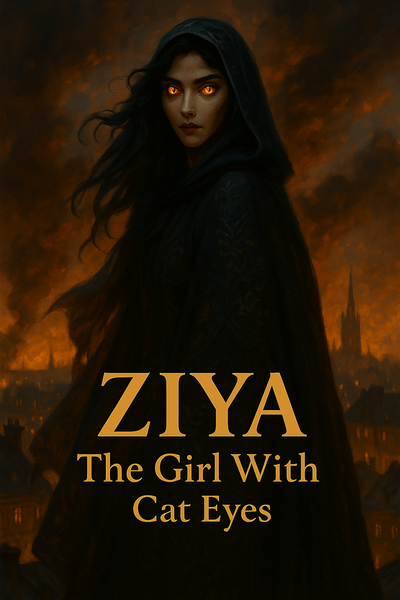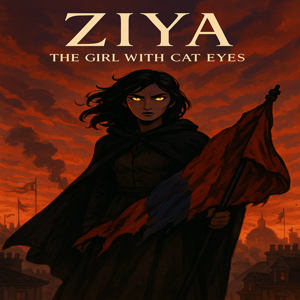Paris, 1789.
The city did not wake.
It groaned.
Fog poured through alleyways like a thief in silk. Bread stalls, long emptied, stood like gravestones on crooked wooden legs. Somewhere nearby, a baker wept into a crust of yesterday’s memory.
And through it all, a boy walked.
He was barefoot. Coal-dusted. Eyes sharp as cobblestones and twice as gray. His name was Julin, though no one used it unless they needed fire lit or bones buried.
Tonight, he was both.
Above him, the cathedral bell refused to ring. It had grown tired of announcing pain. But Paris didn’t need bells to cry anymore. The hunger did it just fine.
Children huddled in corners, chewing newsprint like bread. Rats left offerings near their hands.
And in the shadows of a broken tower — she watched.
Ziya.
They didn’t know her name. Not yet.
She was the whisper in the fog, the echo in a cellar wall. A shape, cloaked in midnight, with eyes that reflected firelight like twin shards of glass.
Some said she was a ghost. Others, a spy. One child swore she saw her walk up the side of a building and vanish like smoke.
No one spoke to her.
But all of them felt her.
The way you feel a storm before it breaks.
Julin did not see her. Not yet.
He only felt a pull, like something ancient and forgotten waking in his chest. He threw another lump of coal into the furnace and whispered to the flame:
“If fire can warm bones...”
“Why not melt chains?”
The fire answered.
It roared.










Comments (0)
See all